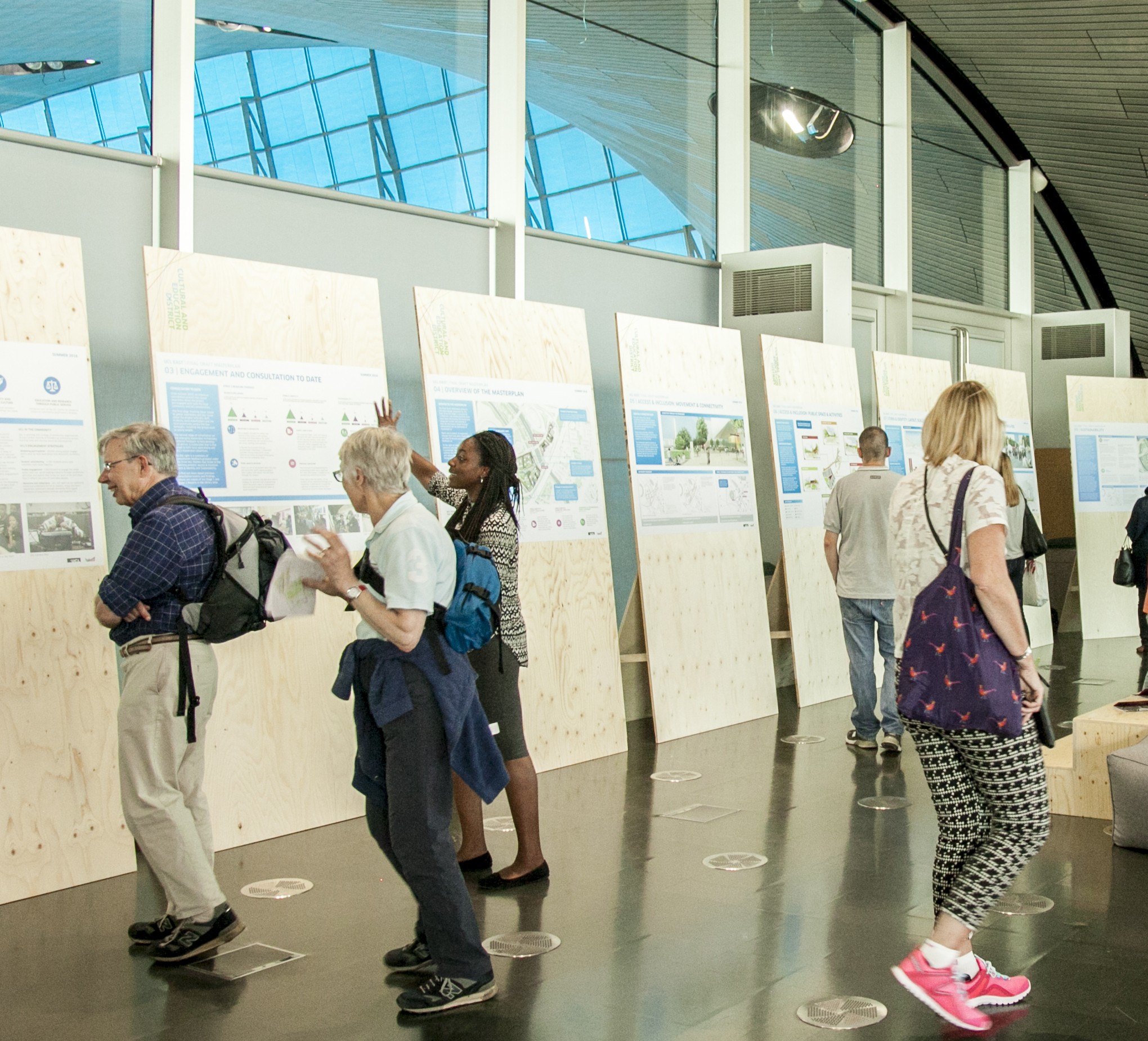Post
Regeneration: Less controversy more collaboration
17 Feb 2021
The London Society aims to provide a platform for the debate on how London ought to develop, and to go with our theme of ‘change’ in 2021, we will have a strand of articles on the blog called “Change: Opinions” – polemical pieces that make a case for a radically changing some aspect of the status quo or of received wisdom.
Gabrielle Appiah is a Project Coordinator at Soundings + Fluid, an organisation who, for more than 15 years, have been at the forefront of best-practice participatory engagement. Soundings + Fluid are part of the Collective Community Action network who are campaigning to ensure that communities are at the heart of urban change.
If you have a piece that you would like to submit, please email blog@londonsociety.org.uk
London, like all cities, is always changing. Population change is an inevitable social process which results in significant implications for planning in the present and in the future.
For the past 30 years, London’s population has been rising which has several implications including a lack of housing, and environmental impacts. The coronavirus pandemic has resulted in unprecedented, wide ranging change, including in work, travel and migration patterns which is also linked to the projected decrease in the population by 300,000 in 2021 [1]. This projected dip in population levels does not, however, alleviate the issues faced by London as a city. There remains a lack of affordable housing, a decline of high streets and town centres and increasing inequalities, among other issues.
London must respond to inevitable changes while ensuring the city is inclusive and accessible for all Londoners. Development and regeneration schemes are vital in London’s response to these changes. However, especially in recent years, these schemes are often seen as controversial by local communities and activists. Too often, key actors in these schemes including developers, planners and local authorities are accused of prioritising profit margins over the needs, wants and wishes of the local community.
The planning system is designed to provide an opportunity for individuals to exercise their democratic right to have a say in how their area looks, feels and operates. The need to develop and regenerate areas remains, but we must ensure that all individuals have a say in the future of their communities.
Meaningfully involving Londoners in this process can create better places and outcomes for all. The act of being involved in decision making can empower communities and create a sense of belonging; the knowledge and the lived experiences of individuals can inform developers, planners and architects’ understanding of how a development can support the needs and aspirations of the local people while helping them to deliver more profitable development on the basis of better understandings; and more sustainable uses of land through public pressure will benefit all.
For the inherent social, economic and environmental benefits of involving communities in the planning process to be realised, there needs to be a high standard placed on how it is carried out. Community engagement that is early, proactive and ongoing builds trust and transparency with the local people. In addition, London’s community is rich and diverse, composed of people who need and want to communicate in a variety of ways. Therefore, methods of engagement should reflect and celebrate this.
Now, more than ever before, the coronavirus pandemic has demonstrated that London, like all communities, can thrive when we work together to solve problems and come up with new ideas. As our capital city recovers, we can build on this sense of community, and continue in dialogue to better understand how to respond to recurrences of Covid-19.
In January 2021, Collective Community Action (CCA) was launched to promote the idea that communities should be at the heart of urban change. Made up of diverse individuals including consultants, educators and built environment professionals, CCA strives to advance the role that communities play in shaping the future of our city.
As a starting point, CCA calls on each candidate seeking to become the next Mayor of London to commit to releasing a Mayoral Statement of Community Involvement. We want to see a city where Londoners, professionals and politicians work together to shape a built environment to benefit all. If London really is going to bounce back better, professionals, politicians and activists need to remain focussed on the people who they serve.
On Thursday 11th February, Centre for London announced that they are taking up the challenge called for by CCA to increase the public's involvement in planning. In collaboration with CCA and other key stakeholders, Centre for London are developing and launching their manifesto to set out how the next Mayor can transform how local people and communities are engaged in planning, with the launch scheduled in March 2021. For a broader overview of the ambitions of Collective Community Action, the manifesto outlines our thinking and what we hope to achieve; once you’ve read the manifesto, we hope you will support what the Collective Community Action network is looking to achieve. To support the network, please share this with your networks #ccaction #mayor4communities.
[1] Richard Partington, London population set to decline for first time since 1988 – report, The Guardian, 07.01.21
